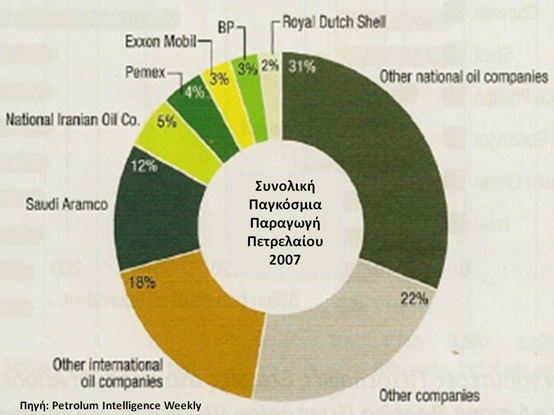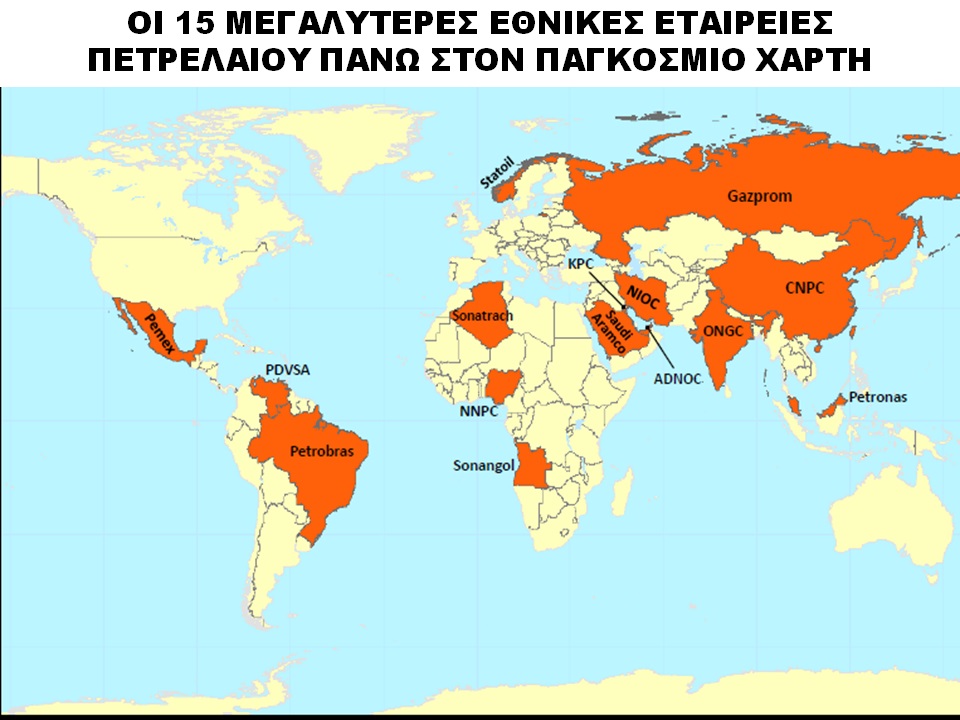20974 - The collapse of the myth regarding the big multinational oil companies
E. Konofagos, , N. Lygeros
Translated from the Greek by Athena Kehagias
In the past, public opinion considered that the multinational petroleum giants, were as we all knew them, the 7 sisters, which became 6 later on, following between them incorporations, namely, ExxonMobil, Chevron, Shell, BP, ENI & TOTAL.
But the energy world has changed dramatically and radically since the period that almost all politicians recommend for us be very careful of the 7 multinational predators, or as they were then characterized, the seven sisters of the oil sector.
Therefore the energy changed but not the politics.
Nevertheless the public which is not observing the developments, continues even today to believe that the big international oil companies, or Super Majors as they are called, are those which control the oil prices, and the vast majority of the world hydrocarbon reserves.
The illustrations below, show that this is no longer the case, and that this myth has collapsed, while our politicians, those who are unenlightened in regards to this sector, still use it as an excuse, in order to promote other forms of interests:
Access of International Petroleum Companies in Petroleum Reserves in comparison with that of National Oil Companies.
A picture of the Global Oil Production, which refutes the myth of its control by large multinational companies.
Moreover, ever since March 2007, the Financial Times for the first time identified the new 7 sisters, which are amongs the world’s largest national oil companies, and who are controlling, both reserves and production. These are the following:
1. SAUDI ARAMCO (Saudi Arabia)
2. JSC GAZPROM (Russia)
3. CNPC (China)
4. NIOC (Iran)
5. PDSA (Venezuela)
6. Petrobras (Brazil)
7. Petronas (Malaysia)
Two of the most important of them belong to the Islamic arch, and they should be viewed with caution, because a significant part of their profits is often channeled in order to exert specific aggressive policy, and not unfortunately, in order to contribute to the economic wellbeing of their nations, who face serious problems.



